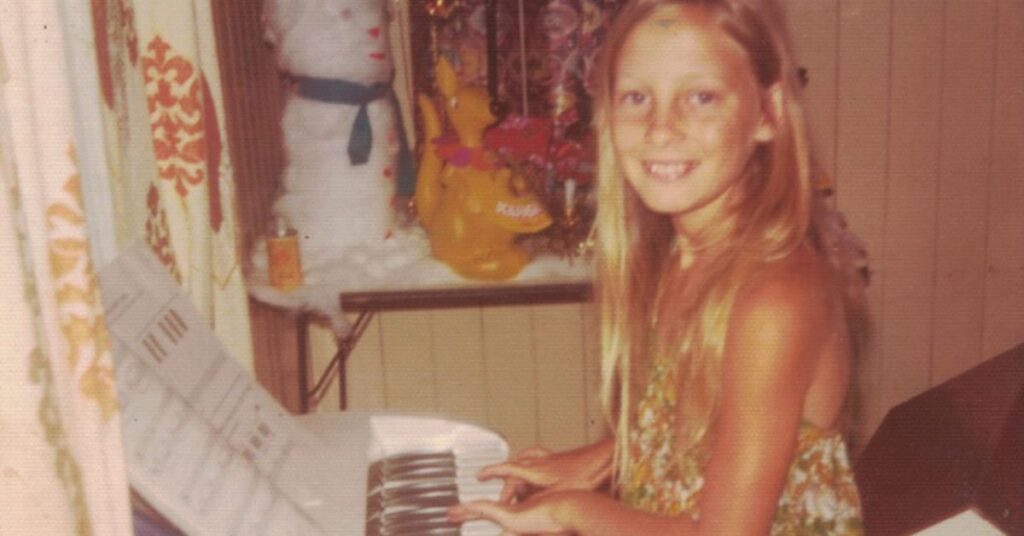
On the surface, the Sutherland Shire in New South Wales seemed like an idyllic place for teenagers in the late 1970s, with its sun-drenched beaches and lively surf culture. However, beneath this carefree exterior lay a darker reality, as depicted in the classic novel and Netflix series Puberty Blues. This hidden side of “The Shire” was marked by wild parties and risky behaviors, making it a potentially dangerous environment for young girls.
In January 1980, 16-year-old Elaine Johnson vanished without a trace, followed by her 17-year-old friend Kerry Anne Joel. Their disappearances, initially dismissed as runaway cases, barely registered with local law enforcement. Elaine’s father, Clifford, reported her missing, but the police showed little urgency, attributing her absence to teenage rebellion. It wasn’t until 2014 that the girls’ friends were interviewed, and a 2016 inquest revealed the original police file on Elaine had been lost.
Podcast Sheds New Light on Cold Case
A new podcast by investigative journalist Kate Kachor, released this week, is bringing renewed attention to the case. The podcast, titled Out From The Cold: Searching For Elaine, delves into the shortcomings of the initial investigation and explores new leads. Elaine’s sister, Helen Cooper, who was just 12 when Elaine disappeared, recalls her sister as a fun-loving and well-liked girl, casting doubt on the runaway theory.
“She was just fun-loving, and she was my big sister, we looked up to her,” Helen told Nine.com.au. “She was quietly spoken, though, she wasn’t a rowdy person.”
The 2016 inquest concluded that the girls likely died shortly after their disappearance, and the case was referred to the unsolved homicide unit. Despite this, Elaine’s family has never stopped searching for answers, convinced that someone in the girls’ social circle knows more than they’ve revealed.
Family’s Continued Search for Answers
The year leading up to Elaine’s disappearance was tumultuous. After moving from Cronulla to Kurnell, Elaine frequently stayed away from home, much to her parents’ concern. Tensions peaked when the family returned from a camping trip to find their home trashed after a party Elaine had thrown.
Helen recalls the aftermath vividly, describing the chaos: a car had crashed into the front wall, the bathtub was filled with beer bottles, and dishes were scattered everywhere. Clifford, Elaine’s father, confronted her, leading to a heated exchange. Although her parents claim this was the last time they saw her, Helen remembers Elaine sneaking back into their room the following night.
“We were watching television on the floor … she was also mucking around and taping herself singing,” Helen said. “That was the last time I saw her.”
In the weeks following, Elaine stayed briefly at a flat in Gymea and at local caravan parks, but then the trail went cold. Despite Clifford’s attempts to alert the police, they remained unconvinced of any foul play.
Community Secrets and Calls for Action
Helen believes the party Elaine hosted holds crucial clues, noting that no one has admitted to attending. This silence, she suspects, is part of a broader culture of secrecy in Kurnell, where residents may be protecting each other due to other illicit activities in the area.
“As I’ve gotten older, I’ve realised there was a lot more going on in Kurnell, outside of Elaine’s case,” she said. “They all protect each other. Everyone knows everyone’s business there.”
The Johnson family is urging police to offer a reward for information that could solve the case, a suggestion that has yet to be accepted. Helen questions why authorities are hesitant, arguing that a reward could incentivize someone to come forward.
“They should definitely offer a reward,” Helen said. “I don’t understand what the problem is, because (the government) doesn’t have to pay anything, unless somebody comes forth.”
NSW Police have stated that the case remains open with the State Crime Command’s Unsolved Homicide Team, which continues to assess and monitor for new information.
Hopes for New Leads
Kachor, who has been investigating the case for two years, hopes the podcast will prompt someone to break their silence. By revisiting old witnesses and reviewing evidence, she has uncovered compelling new information that could finally bring closure to the Johnson family.
“Ultimately Elaine’s family is hoping that releasing this podcast will jog someone’s memory – or lead a guilty conscience to finally get in touch with them or with the police,” Kachor said.
As the podcast gains traction, the Johnson family remains hopeful that renewed public interest will lead to the breakthrough they’ve been seeking for over four decades.






